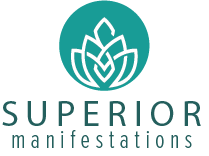Trauma

The Heal Method: Emotional Processing and Desensitization Program (EPDP)
This program is...
- Based on results and scientific proof.
- Short term processes that will teach you how to naturally take control of your life, with long term affects.
- Works at both conscious and subconscious levels to help you create new neuropathways to break free from anxiety.
- Completely natural methods, using the power of your mind to allow you to be in control of how you want to feel.
THIS PROGRAM IS FOR THOSE OF YOU WHO ARE SERIOUS ABOUT OVERCOMING TRAUMA AND PTSD!
This program is not...
- Long term.
- Based on medical modalities or the use of medication.
- Therapy sessions in that the focus is on talk therapy. You may be required to access past events for a moment, however, it is forward focused healing.
- Time consuming techniques, nor are they difficult to complete.
THIS PROGRAM IS NOT FOR YOU IF YOU ARE NOT READY TO RELEASE THE PAST EVENT!
PROGRAMS: 1:1 Coaching
The HEAL Method: Emotional Processing & Desensitization Program (EPDP)
This program is an opportunity for you to release the negative experience from your mind and body for good. Shannon uses a variety of neuro cognitive methods such as EMDR, NLP and hypnosis to change how your brain processes the event. Once the event is changed the uncomfortable feelings you experience tend to disappear allowing you to move forward and live again. The sessions take a gentle and safe approach to ensure you are comfortable every step of the way.
Each session is about an hour in length. This program is not therapy, it is a solution-based methodology proven to create change at a neurological level. During each session, we will use tools to measure your progress so that you can see the changes you are making.
Week # 1- An Opportunity to Create New Patterns In the Mind
- An opportunity to set clear goals and start the process of releasing unwanted feelings.
- Discussion on how the brain processes information and reasons why the techniques will work to create the changes.
- You will scale your physical and emotional responses using the subjective units of distress scale (SUDS).
- Negative emotion replacement technique- release unwanted emotion and fuel body with calm feelings.
Week #2- Releasing FITES of Trauma to Move you Towards a Calm Space
- Releasing the negative Feelings, Images, Thoughts, Emotions, Sensations you have been holding onto in a safe and gentle space.
- Learn the power of the mind and see firsthand how quickly changes occur when you tune into the information you send to the brain.
- Rescale physical and emotional responses using SUDS.
- Learn a parasympathetic activation technique to calm your nervous system and bring you back into alignment.
Week #3- Optimizing the Flow of Energy
- Learn how your energy systems effect your wellbeing and cultivate rhythm to bring you back to homeostasis.
- Restore calmness and de potentiate negative energy in the body.
- Using the SUDS scale, you will check in on your emotional patterns and see the positive outcomes that you are manifesting in your mind and body.
- Learn a third technique to respond to emotions and harness a powerful positive state.
Week #4- Cultivating Confidence to Move Forward Successfully
- Measure emotional regulation response using the SUDS scale, and evaluate how far you have come.
- Cultivate clarity and confidence using a therapeutic technique to allow you to move forward successfully.
- Revisit your goals set out in session #1 and discuss strategies for continuous success.
- Learn a fourth technique to bring you clarity and confidence to overcome any situation or decision.
If overcoming trauma and PTSD is something that interests you, book your 4 sessions with the BOOK ONLINE button. If you still are not convinced this program is for you, book a free 20 minute consultation to get answers to your questions.
How do you know if you have been traumatized?
You may experience recurrent, unwanted distressing memories of the traumatic event. Reliving the traumatic event as if it were happening right now. This is also known as flashbacks. You may have upsetting dreams or nightmares about the traumatic event. Severe emotional distress or physical reactions to something that reminds you of the traumatic event.
Types of Traumatic events
- Sexual, Physical or Emotional assault
- Sudden death of a person close to you
- Childhood trauma
- Natural Disaster
- Car accident
- Hospitalization, surgeries
- Witnessing an event
What is the difference between trauma and PTSD?
According to the American Psychological Association, trauma is an emotional response to a terrible event. Trauma can occur once or on multiple occasions and an individual can experience more than one type of trauma. PTSD on the other hand in the mental health disorder that is associated when someone experiences or witness’s trauma.
How I can help you heal.


Research shows that during traumatic events parts of your brain like the thalamus (responsible for making coherent sense of the world by using sensory data) often shut down. Although this happens to protect us, it is also the reason why healing from trauma becomes so much more complex.
Because trauma has such deep rooted sources it is imperative to get to the root cause to heal it. I use a blend of various neuro-cognitive processes such as EMDR, NLP and Clinical Hypnosis in my work that allow the subconscious mind to get in and do exactly what needs to be done to heal and allow the mind and body to feel safe again.
I have worked with people who have experienced various trauma’s and have been able to guide them to massive improvements.
I work with people online and in person. If you would like to take control of your life, contact Unified Wellness at 705-574-4325 or book online.
DISCLAIMER: Shannon is not a doctor and does not diagnose, prescribe, or cure. She simply teaches you techniques that are scientifically proven to create massive changes in your thinking, emotions, and behaviours. Shannon has been in the counselling field for over a decade in many capacities, however found her path to create changes quickly for people by using the techniques she shares with you.
Transformational Mindset Coach: (BA SOC, SSW, HYP, NLP)

